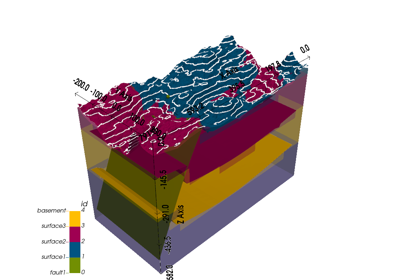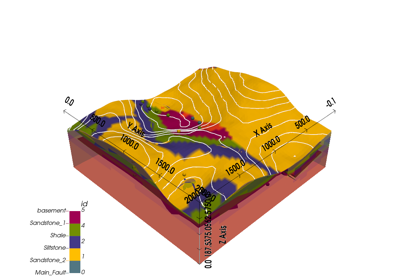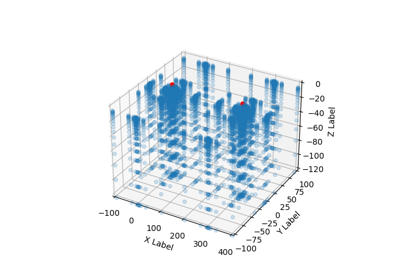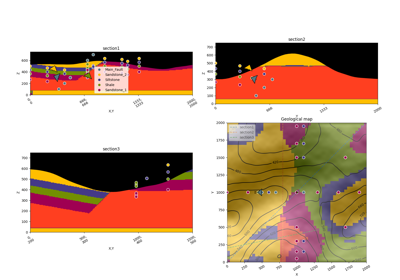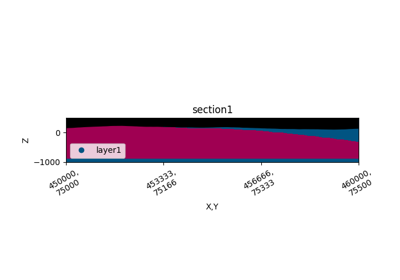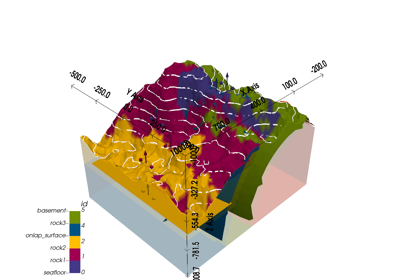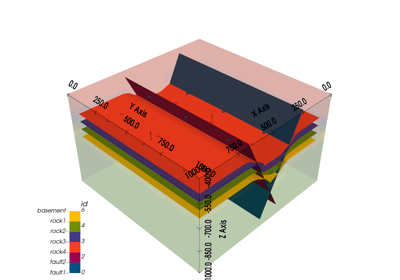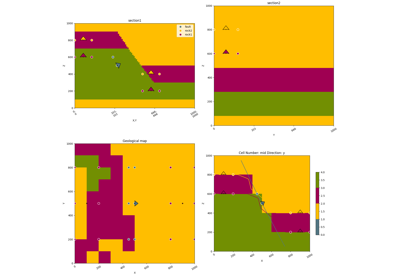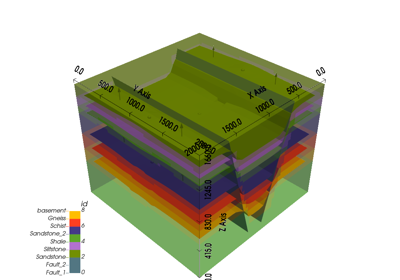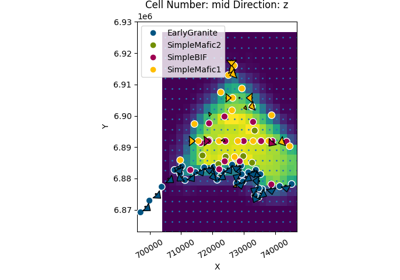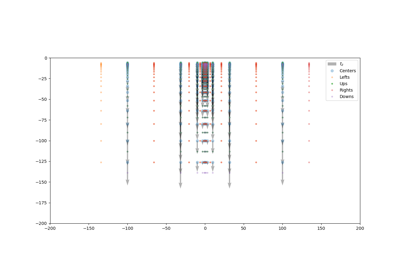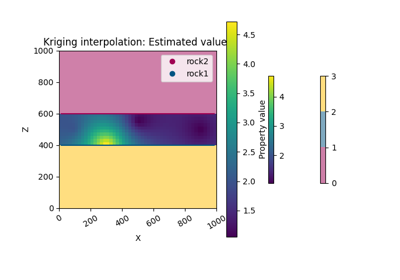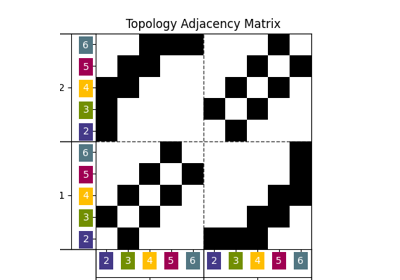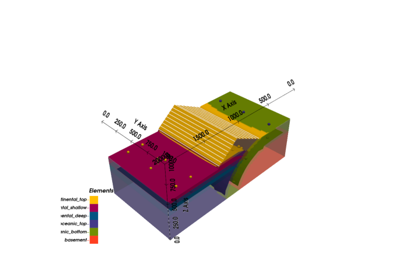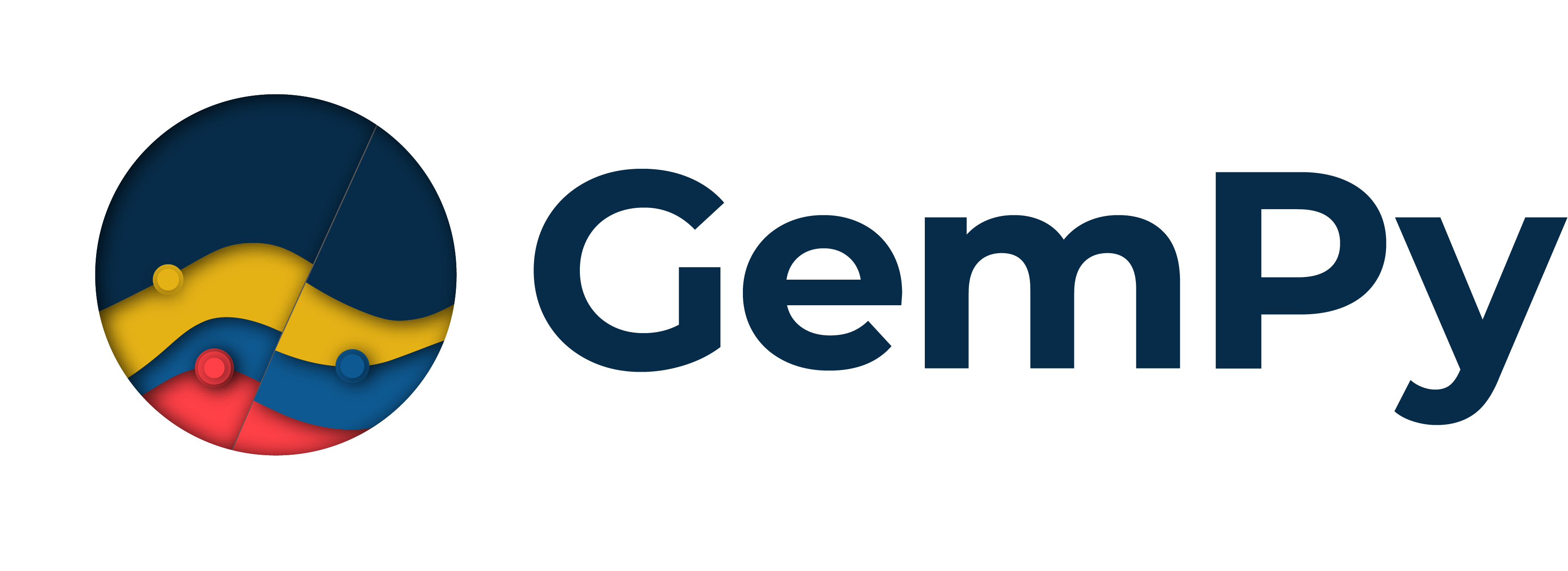GemPy Tutorials¶
Here you will find a selection of examples showing what can you do and how you can do it in GemPy
Getting Started¶
Here you can see how to run a simple GemPy example.
Chapter 1: GemPy fundamentals¶
These examples show the basic functionality to create geometries.
Chapter 2: Forward Geophysics¶
These examples show how to use some of the in built functionality for forward geophysics. At this date GemPy is not meant to be a package for classical geophysical inversion rather to allow probabilistic inversion. This means that we need algorithms that can be fast, differentiable but still capable to estimate the right answer!
Chapter 3: Domain Kriging¶
GemPy uses Kriging to interpolate the scalar field to construct the structural model. However to populate petrophysical data within each domain we also provide functionality to interpolate data in 3D.
Chapter 4: Topological analysis¶
One of the reasons to perform structural modeling is to analyse the topology of the system, i.e. the connectivity between layers. GemPy provide built-in functionality to calculate and analyse this aspect of each geological modeling
Video tutorials¶
Compilation of tutorials for videos on the gempy YouTube channel https://www.youtube.com/@GemPy3D.
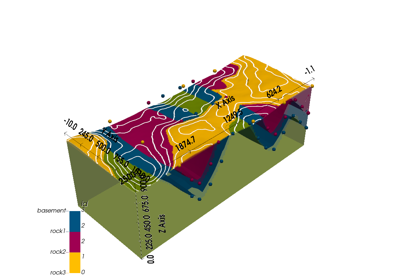
Video Tutorial “code-along”: Modeling step by step
